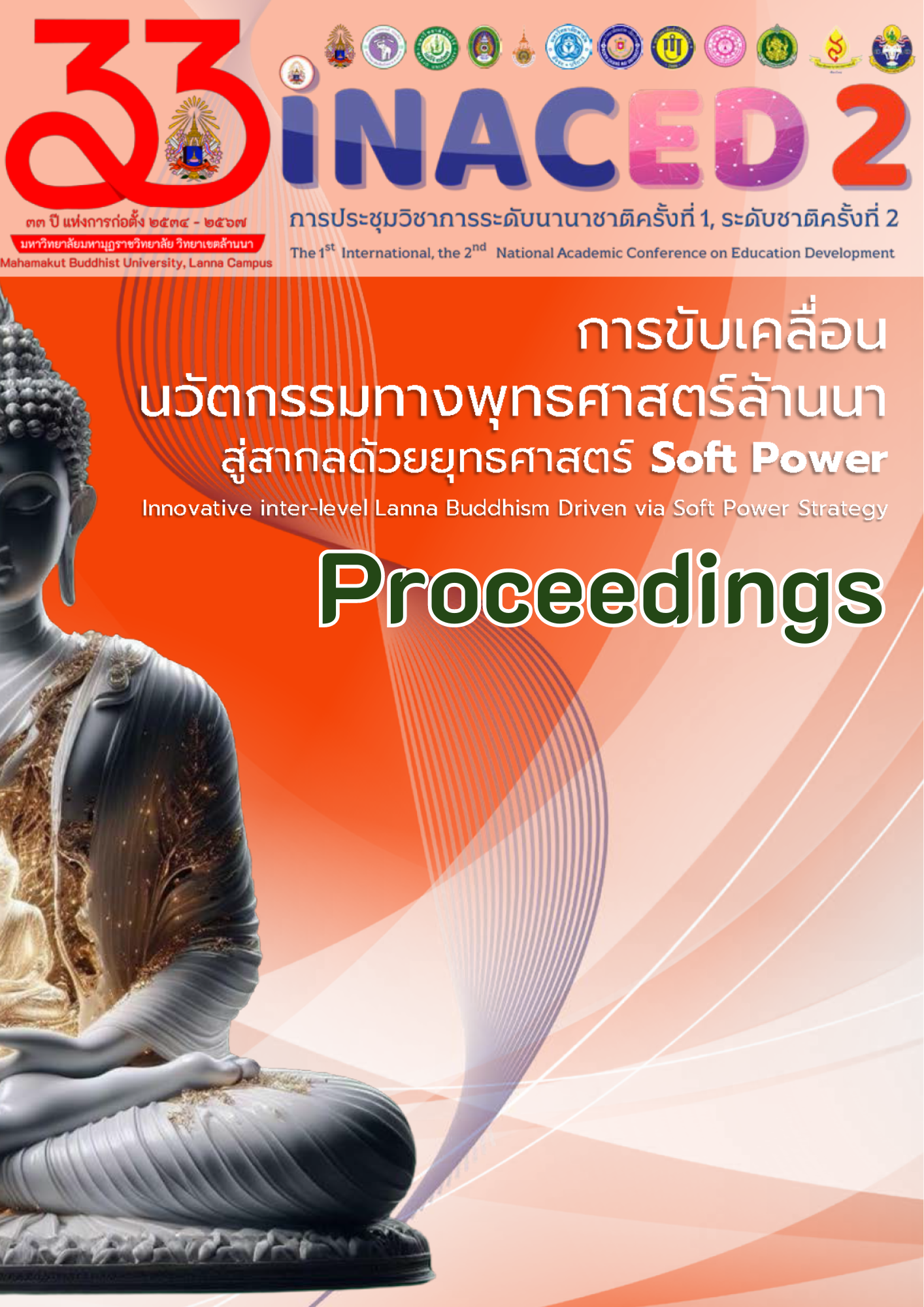มูลค่าและคุณค่าของ “มูเตลู” ในประเทศไทย ที่อาจส่งผลต่อความมั่นคงของพระพุทธศาสนา
บทคัดย่อ
บทความนี้ มุ่งเสนอผลการสำรวจมูลค่าและคุณค่าของไสยศาสตร์ของประเทศไทย เพื่อพยากรณ์ทิศทางของปรากฎการณ์ความเชื่อไสยศาสตร์ในประเทศไทยอันอาจส่งผลต่อสถานะของพระพุทธศาสนาในอนาคต เนื่องด้วยพระพุทธศาสนาเชิงปฏิบัติในสังคมไทย ไม่ใช่พุทธบริสุทธิ์ที่เน้นสาระธรรมที่พระพุทธเจ้าทรงสอนไว้ หากแต่เป็นพุทธศาสนาที่ผสมผสานความเชื่อแบบไสยศาสตร์อย่างกลมกลืนกับวิถีชีวิตชาวบ้าน มีการสร้างวัตถุมงคล สร้างเรื่องราวตลอดจนพิธีกรรมต่างๆ เพื่อปลุกเร้าความต้องการให้เกิดการเช่าบูชา จนเกิดมูลค่าทางเศรษฐกิจมหาศาล ซึ่งบางส่วนก็ไม่ปรากฎในระบบรายรับและภาษีอย่างชัดเจน แต่หากผลักดันให้เป็นระบบก็สามารถใช้เป็นเครื่องมือผลักดัน ซอฟท์ เพาเวอร์ของชาติเพื่อช่วยฟื้นฟูเศรษฐกิจให้มั่นคงขึ้นโดยใช้ทรัพยากรที่มีอยู่มากมายในวิถีความเชื่อของคนไทยอยู่แล้ว เนื่องด้วยตั้งแต่ทศวรรษ 2520 ตลาดความเชื่อ เติบโตและฝังแน่นในสังคมไทย ไม่ว่าสังคมจะเปลี่ยนไปอย่างไร เศรษฐกิจจะเฟื่องฟูหรือถดถอย ธุรกิจไสยศาสตร์ไม่เคยซบเซา มูลค่าทางเศรษฐกิจเรื่องนี้สามารถช่วยฟื้นฟูความมั่นคงของชาติได้ คุณค่าของไสยศาสตร์จึงมีประโยชน์ในแง่เป็นเครื่องมือของ ซอฟท์ เพาเวอร์ทางวัฒนธรรม ที่มีโอกาสเติบโตอย่างไร้ขีดจำกัด ตราบที่มนุษย์ยังต้องการความมั่นคงทางใจ และพฤติกรรมมนุษย์สมัยใหม่ที่ใส่ใจตัวเองมากกว่าผู้อื่น คนส่วนใหญ่จึงยึดเหนี่ยววัตถุทางความเชื่อมากกว่าจะพึ่งพิงเพื่อนมนุษย์หรือหลักธรรมของศาสนา หากสังคมยุคใหม่มุ่งใช้ไสยศาสตร์เพื่อประโยชน์ในการสร้างเศรษฐกิจของชาติ ย่อมส่งผลต่อความมั่นคงของพระพุทธศาสนาในระยะยาว ผู้มีหน้าที่เกี่ยวข้องควรเตรียมความพร้อมที่จะรับมือกับปัญหาที่เกิดจากซอฟท์เพาเวอร์ไสยศาสตร์อิงพุทธอย่างรู้เท่าทัน และลงมือดำเนินการเผยแผ่คุณค่าของพุทธศาสนาที่บริสุทธิ์ เพื่อสร้างสมดุลในคุณค่าของศาสนาให้เป็นที่รับรู้ที่ถูกต้องของชาวพุทธในประเทศไทย และเพื่อจรรโลงของพระพุทธศาสนาให้มั่นคงสืบไป
บรรณานุกรม
จักรพันธ์ แสงทอง. (2021). วาทกรรมพุทธศาสนาแบบไสยศาสตร์ในสังคมไทย ตามทัศนะของสมเด็จพระพุทธโฆษาจารย์ (ป.อ. ปยุตฺโต). วารสารสันติศึกษาปริทรรศน์ มจร. 9(4), 1752-1764
ผู้จัดการออนไลน์. (27 ม.ค. 2566). ธุรกิจ 'มูเกตติ้ง' สร้างรายได้มหาศาล 'ศรัทธา.online' ดึงต่างชาติไหว้สิ่งศักดิ์สิทธิ์ในไทย! https://mgronline.com/specialscoop/detail/9660000008310
ผู้จัดการออนไลน์. (22 ธ.ค. 2566). ฟันธงปี 67 ตลาดพระเฟื่อง! ‘เศรษฐีจีน’ เล็งพระเก่าราคาสูง จับตา ‘จตุคามฯ’ รีเทิร์น?. https://mgronline.com/specialscoop/detail/9660000114507
มูลนิธิโครงการสารานุกรมไทยสำหรับเยาวชน. (2538). ศาสนาและไสยศาสตร์. สารานุกรมไทยสำหรับเยาวชนฯ เล่มที่ ๒๐. https://www.saranukromthai.or.th/sub/book/book.php?book=20& chap=1&page=t20-1-infodetail02.html
ราชบัณฑิตยสถาน. (2554). พจนานุกรม ฉบับราชบัณฑิตยสถาน พ.ศ. 2554. กรุงเทพฯ : ราชบัณฑิตยสถาน.
ลัญจกร นิลกาญจน์. (2561). วัฒนธรรมความเชื่อกับการจัดการของชุมชน. วารสารนาคบุตรปริทรรศน์ มหาวิทยาลัยราชภัฎนครศรีธรรมราช. 10(2), 11-20.
ศิริวรรณ สิทธิกา. (16 ส.ค. 2566). จักรวาลสายมู การตลาดที่ขับเคลื่อนด้วยความเชื่อ กับวัตถุที่ถูกทำให้ศักดิ์สิทธิ์. ไทยรัฐออนไลน์. https://plus.thairath.co.th/topic/politics&society/103603
สุทธิพจน์ แผ่รุ่งเรือง. (2565). วัตถุทางความเชื่อภายใต้อุดมคติของมนุษย์ [วิทยานิพนธ์ศิลปมหาบัณฑิต]. สาขาวิชาทัศนศิลป์ มหาวิทยาลัยศิลปากร. http://ithesis-ir.su.ac.th/dspace/bitstream/ 123456789/4612/1/640120005.pdf
สุมาลัย กาลวิบูลย์ (2560). พุทธศาสนาและความเชื่อในสังคมไทย. กรุงเทพฯ: มูลนิธิเล็ก-ประไพ วิริยะพันธุ์.
อธิป จันทร์สุริย์. (2021). มูเตลู: ความเชื่อกับการท่องเที่ยว. วารสารทีทัศน์วัฒนธรรม สำนักศิลปะและวัฒนธรรม มหาวิทยาลัยราชภัฏบ้านสมเด็จเจ้าพระยา, 20(1), 220-240.
Peter A. Jackson/วิราวรรณ นฤปิติ (ผู้แปล). (2566). Capitalism Magic Thailand (เทวา มนตรา คาถา เกจิ: ไสยศาสตร์สมัยใหม่กับทุน (ไทย) นิยม). กรุงเทพฯ: มติชน.

